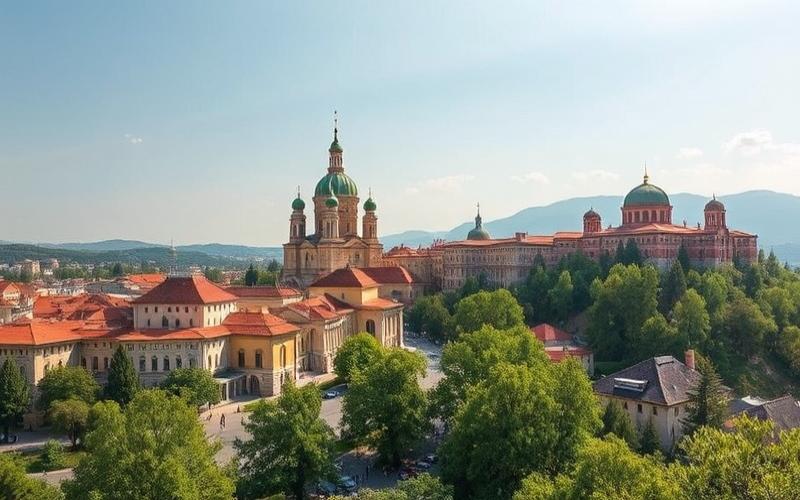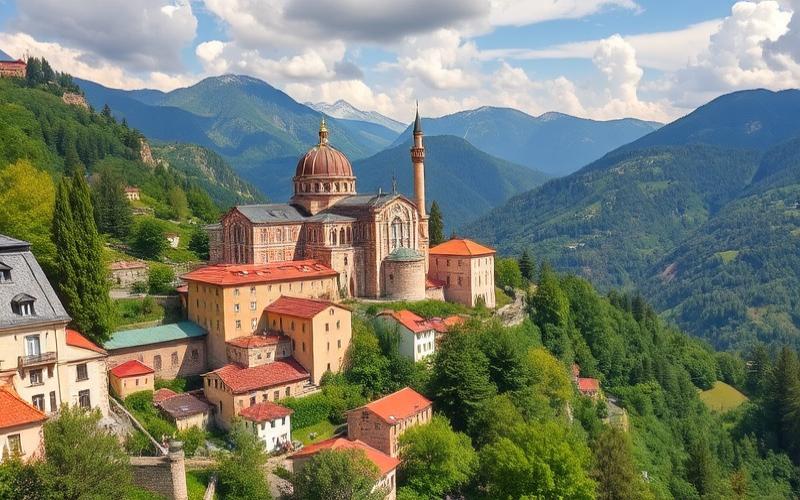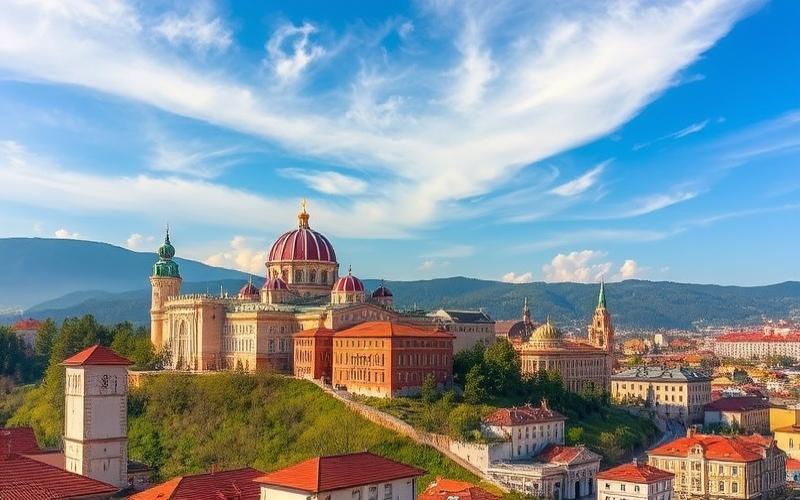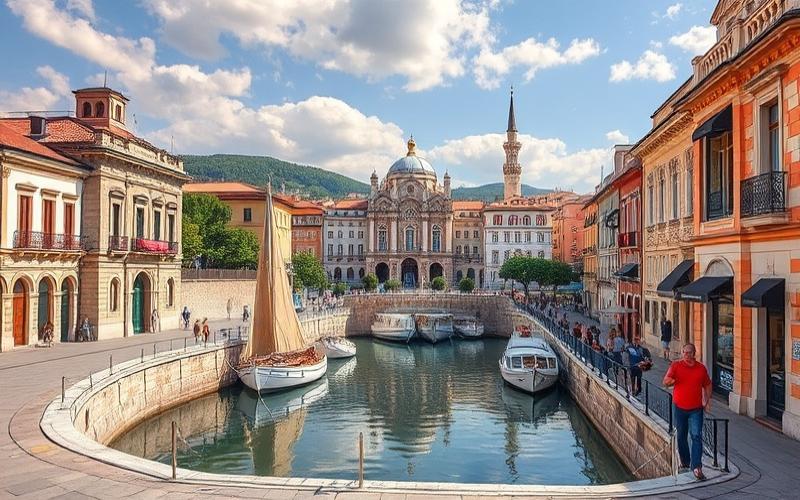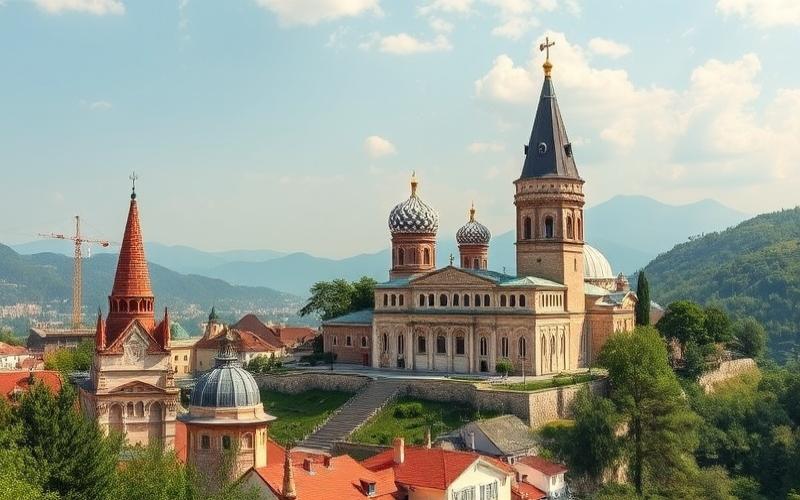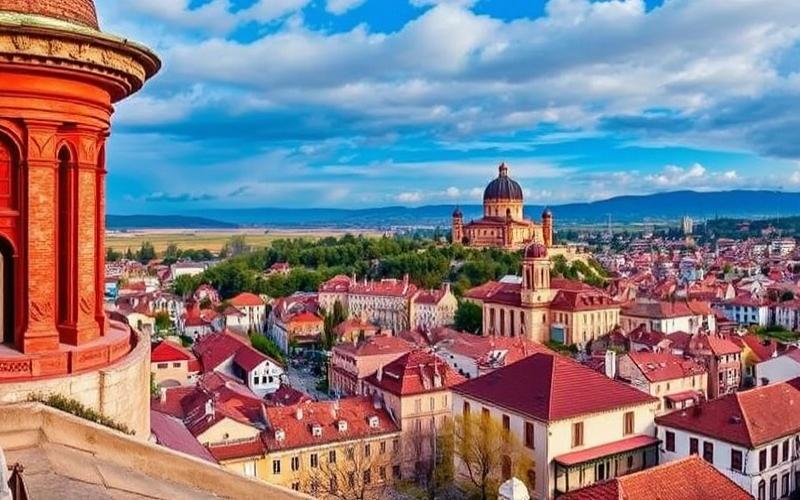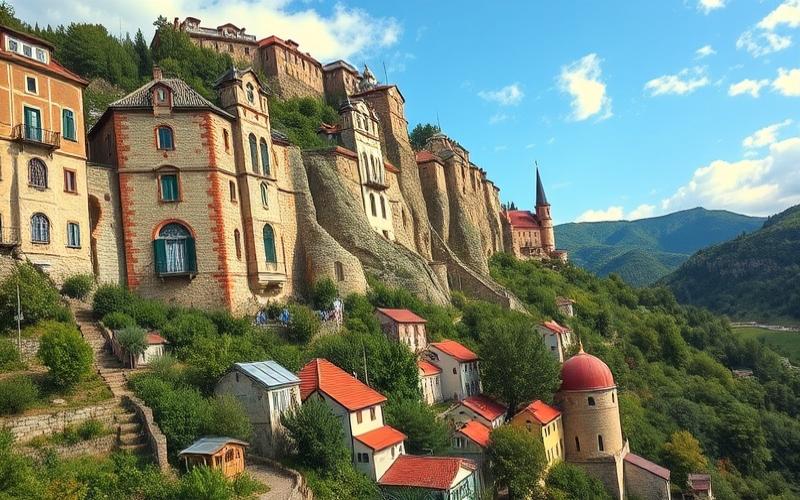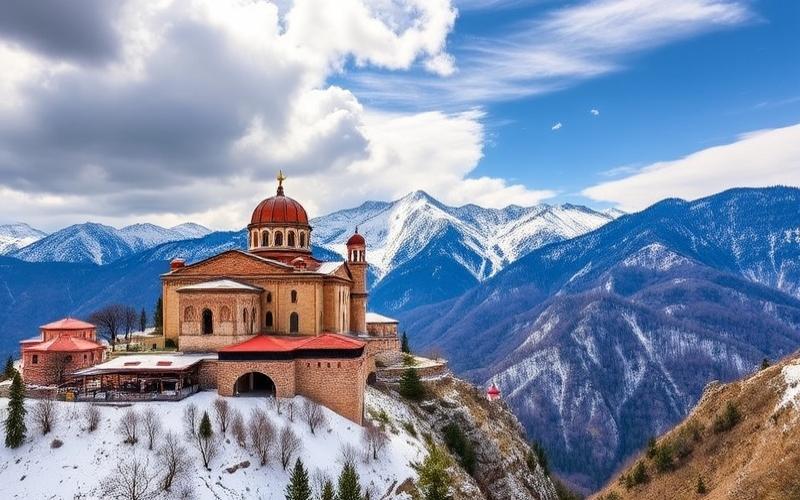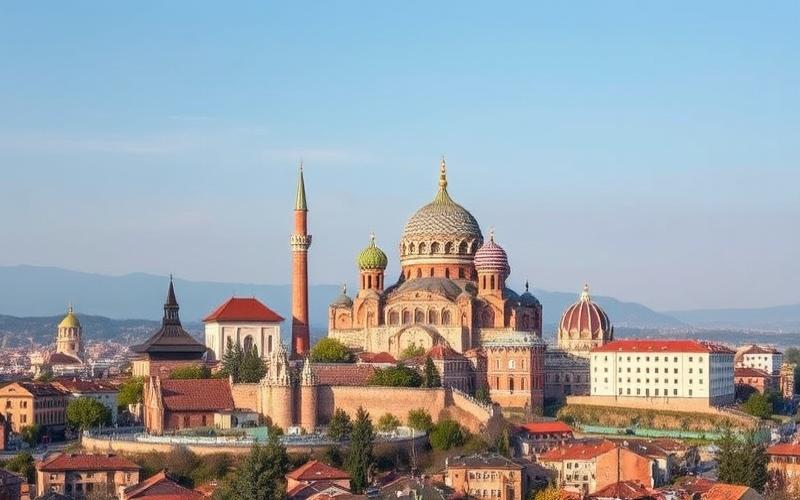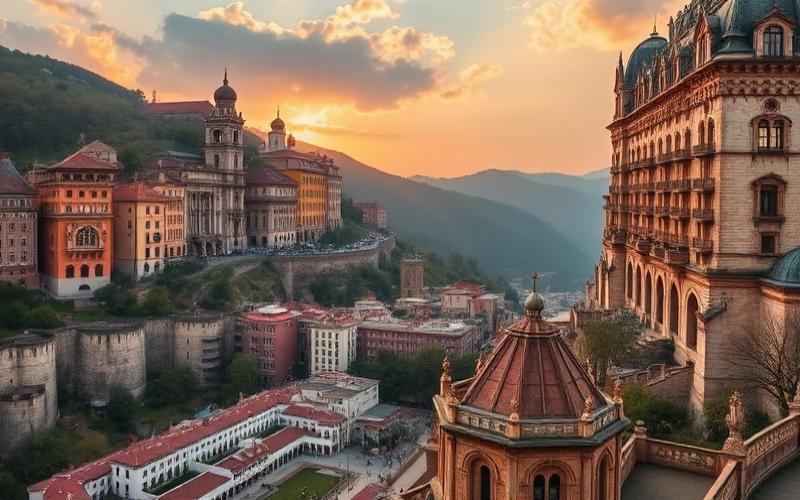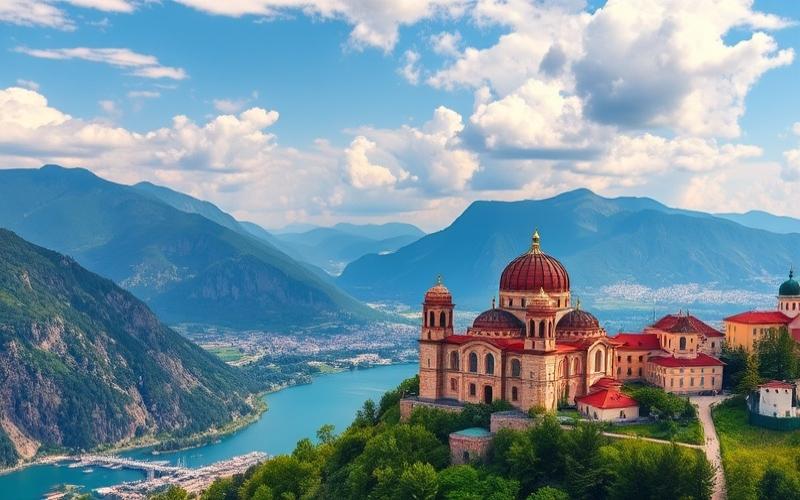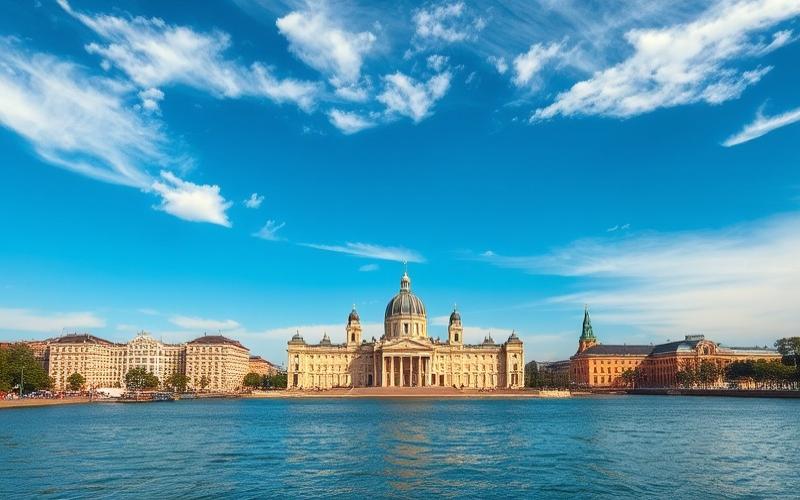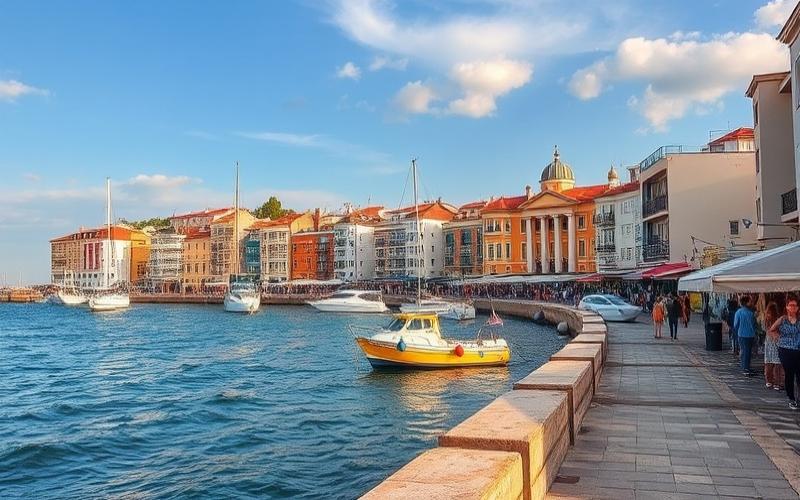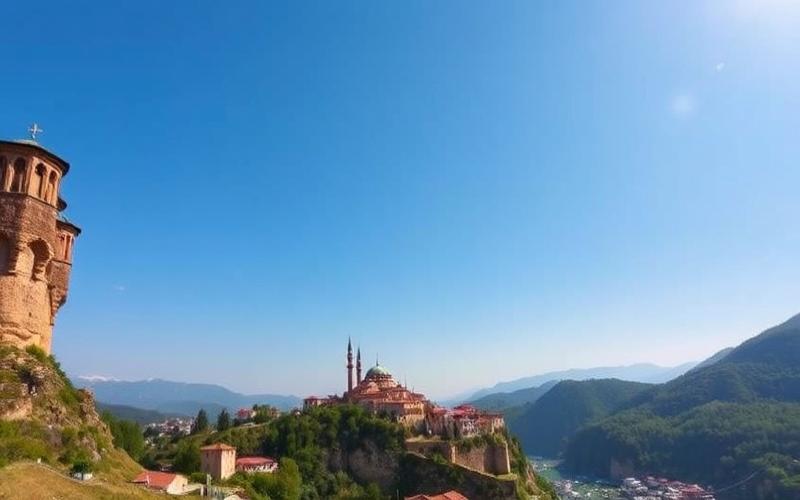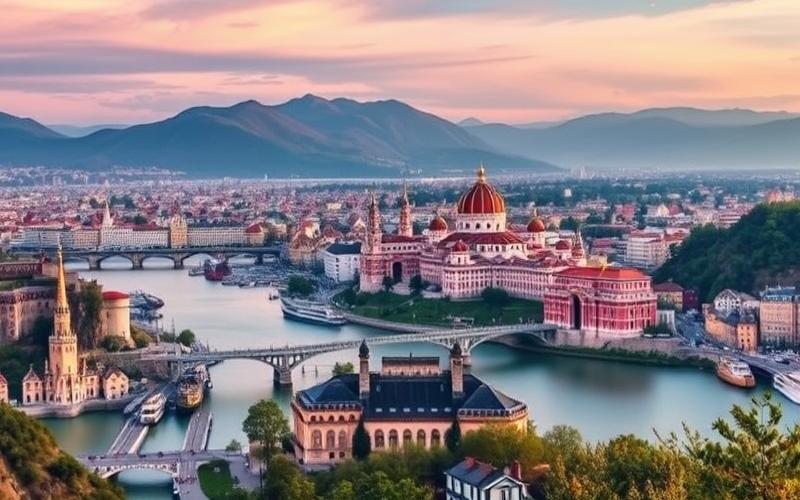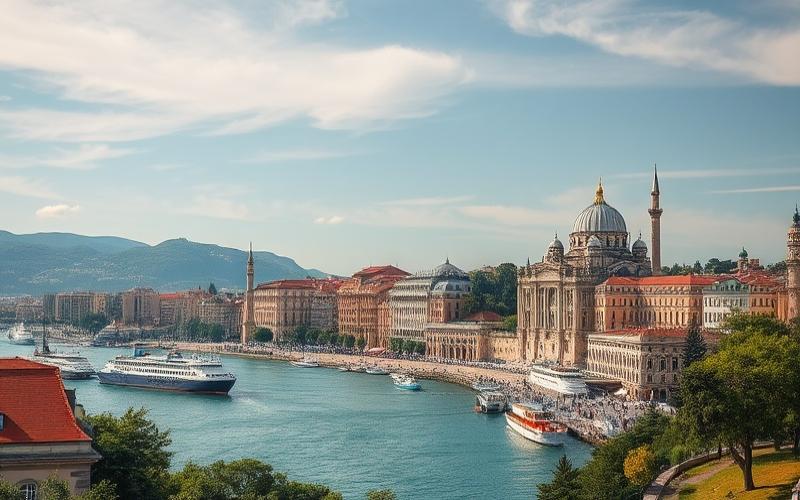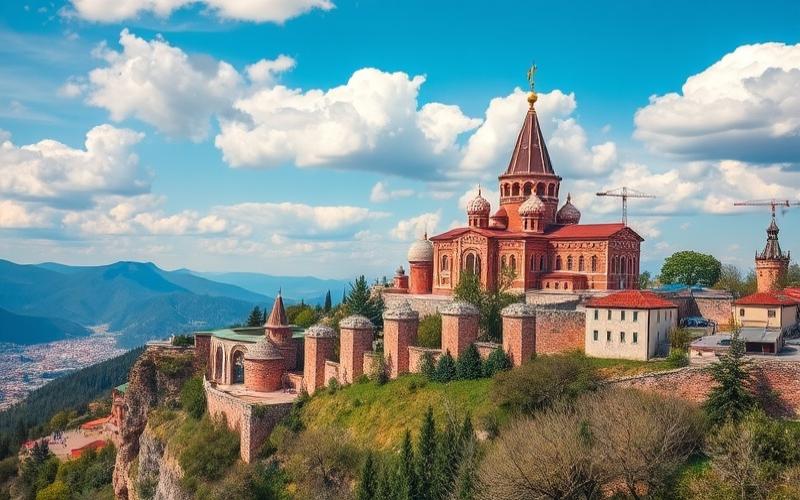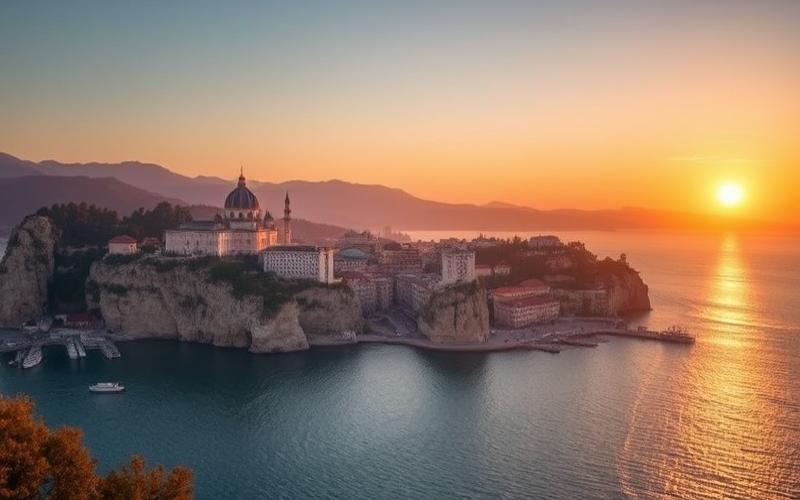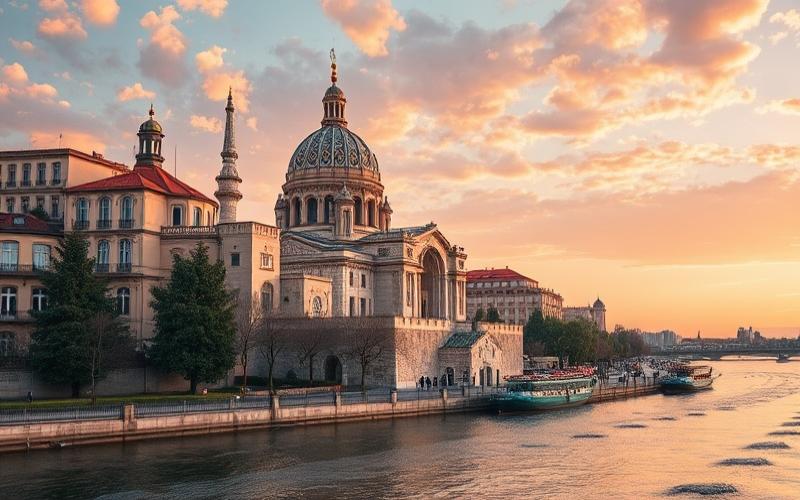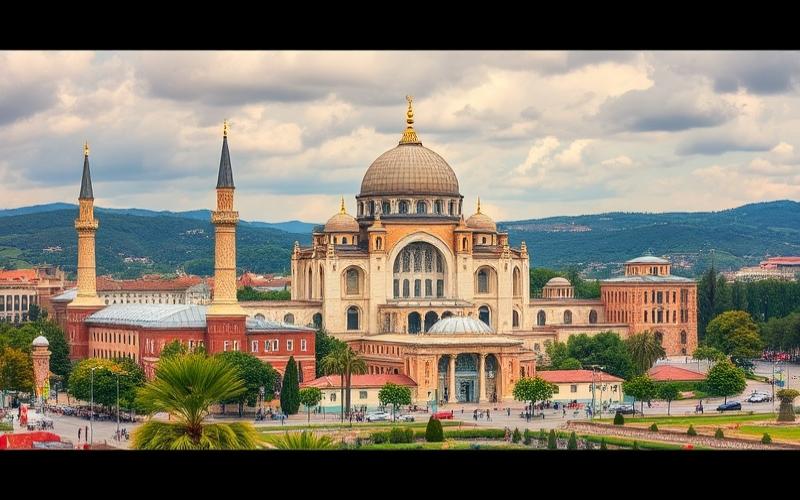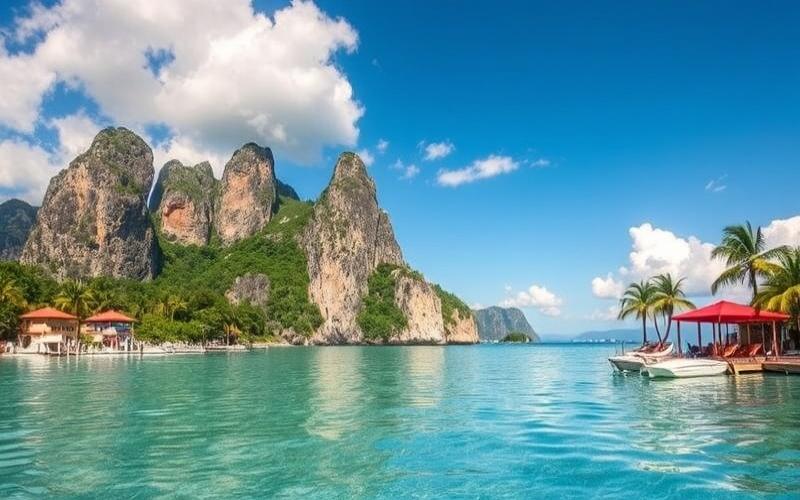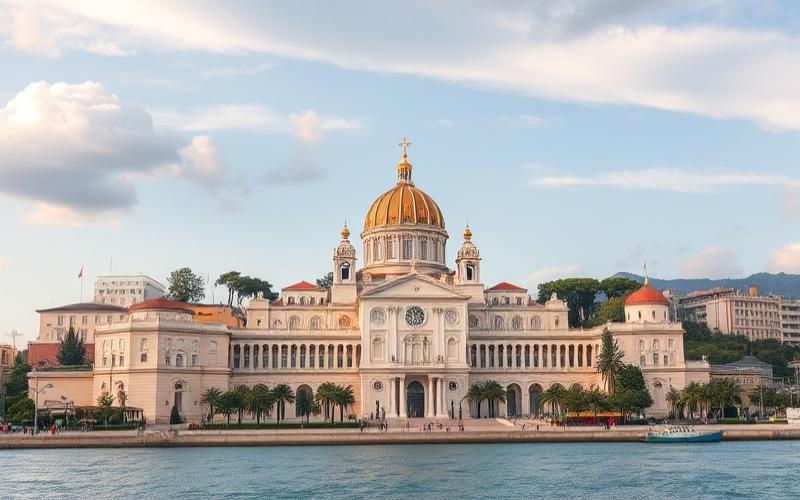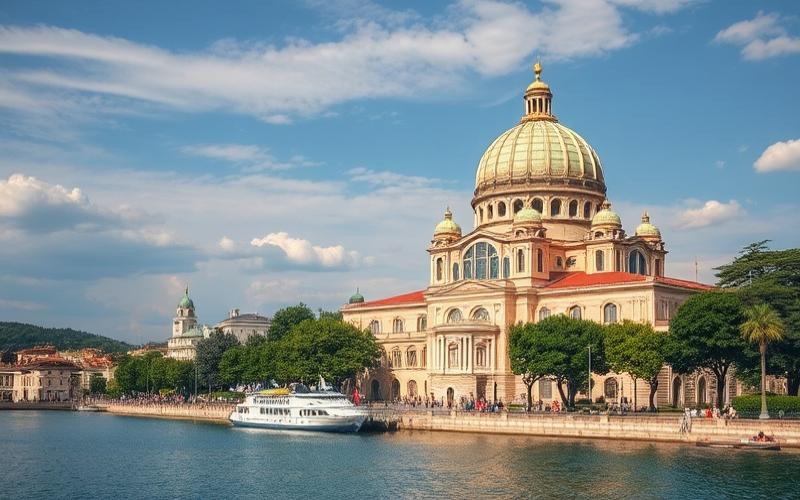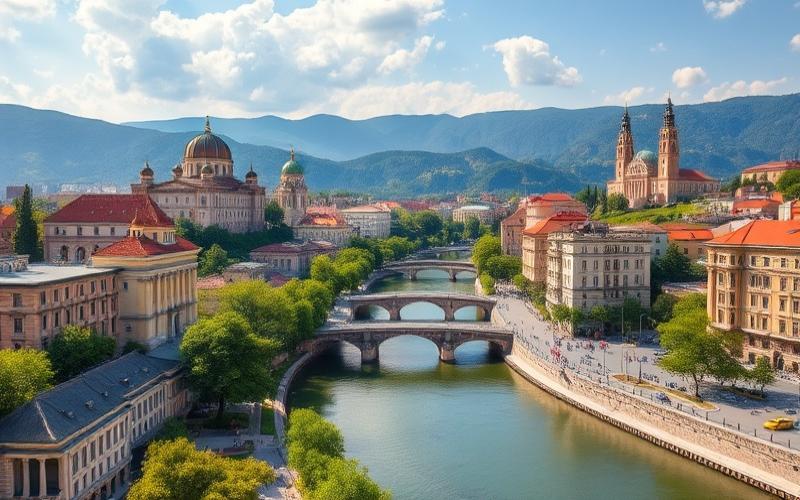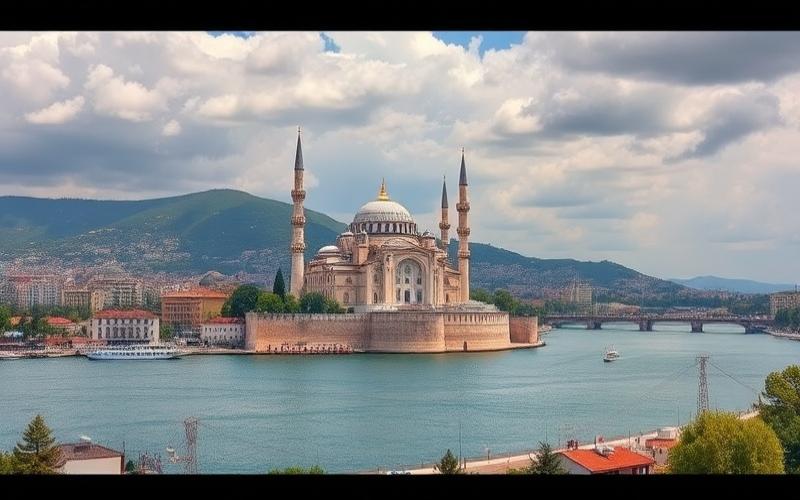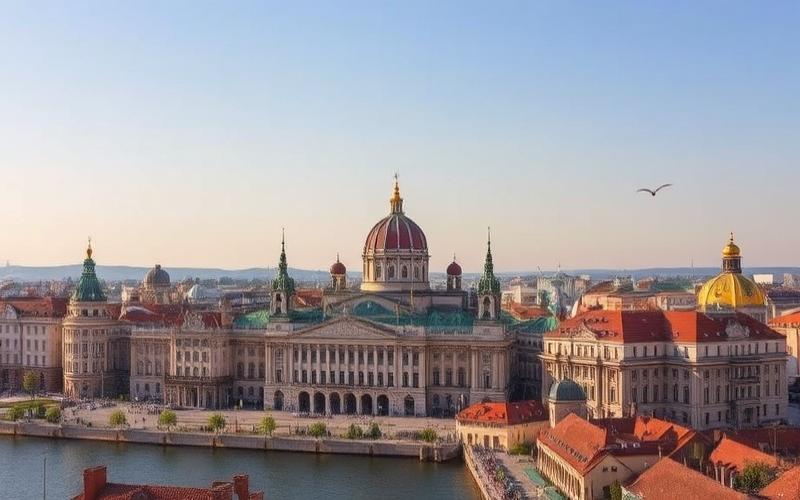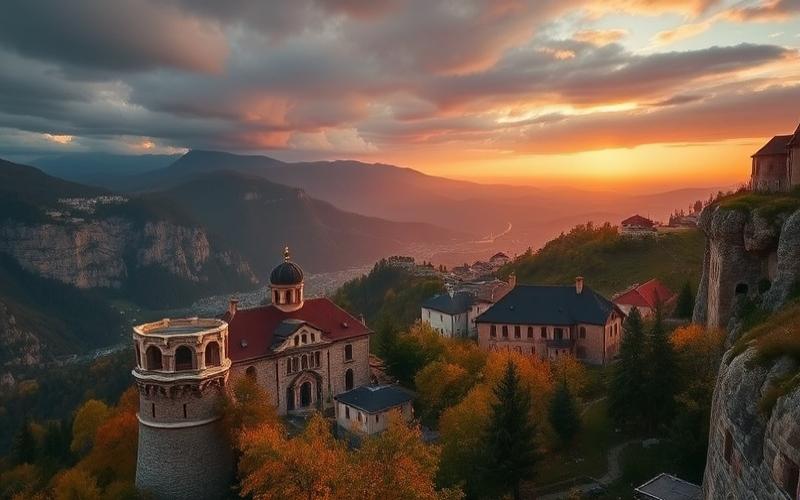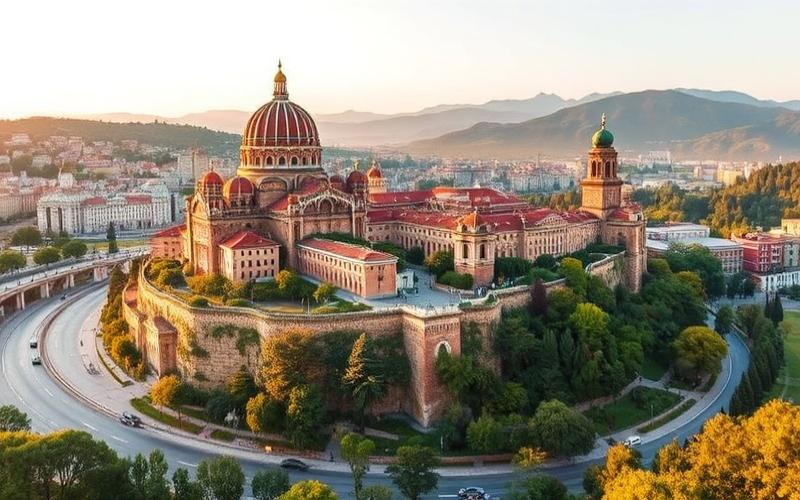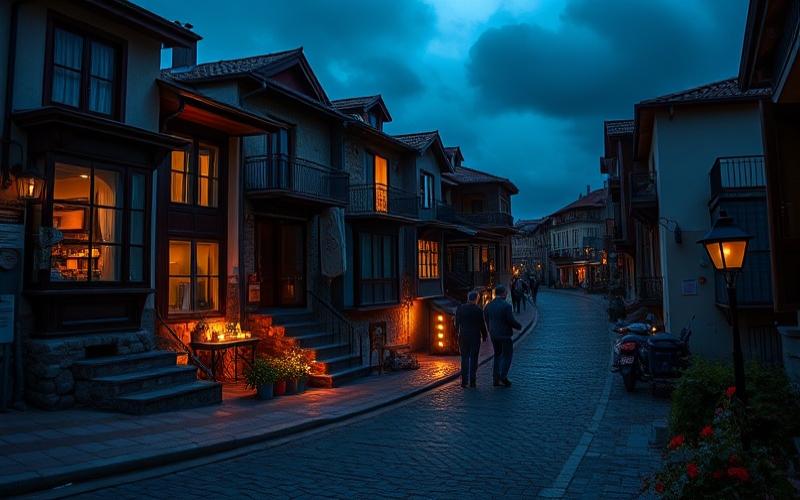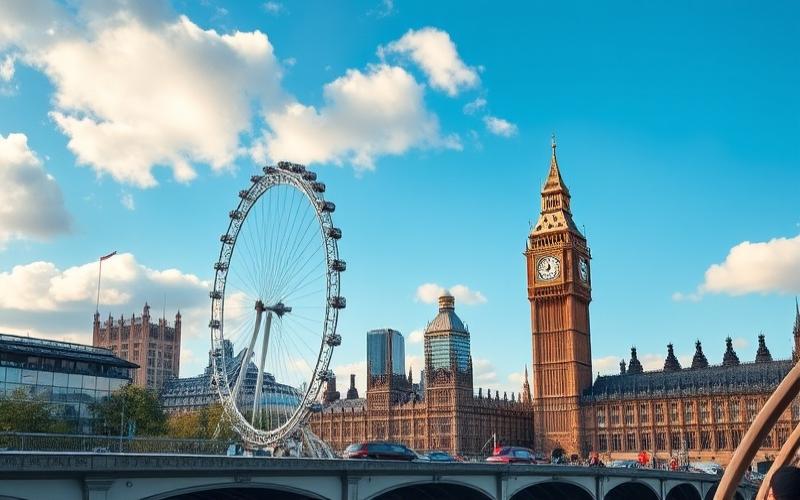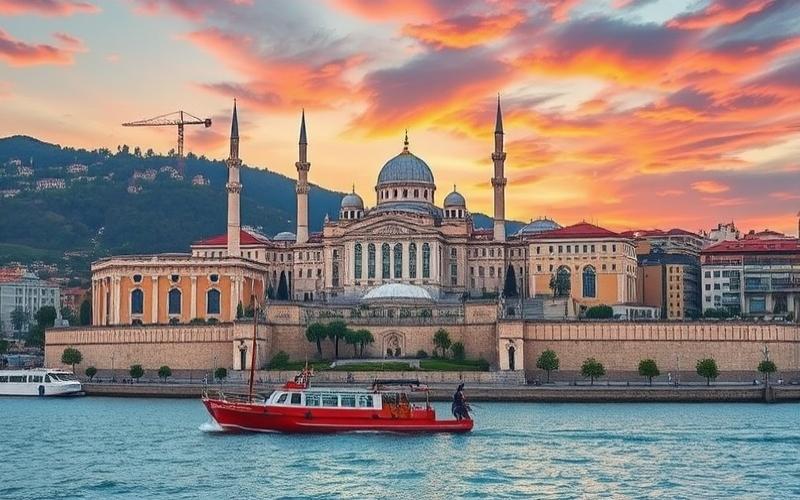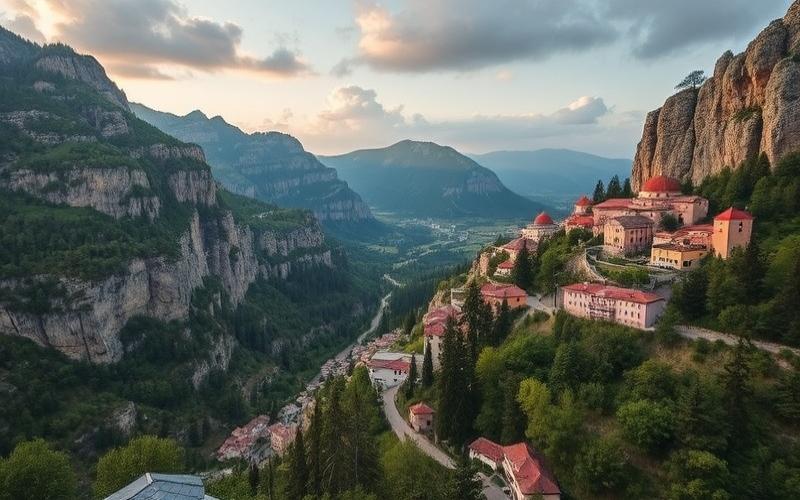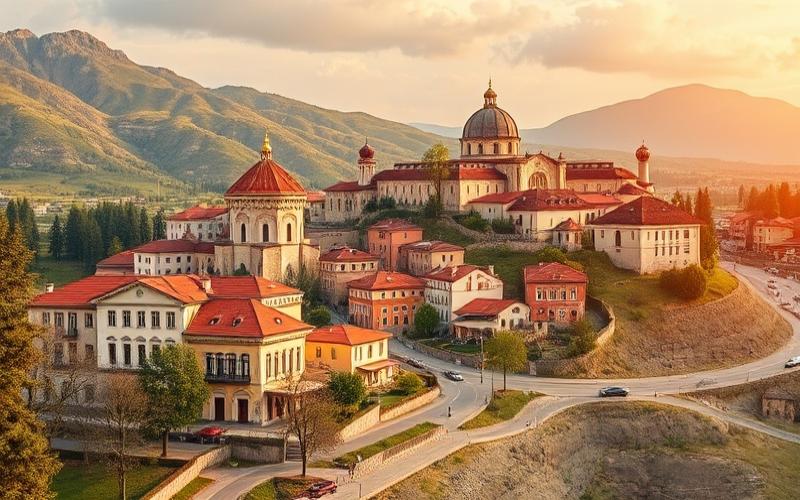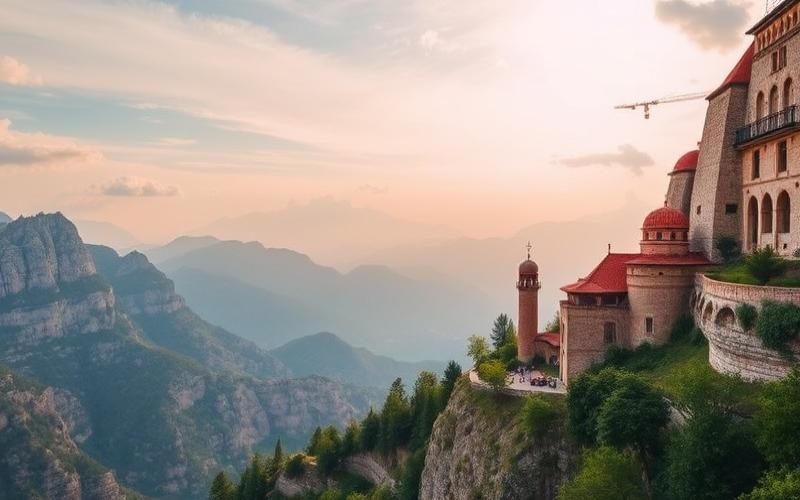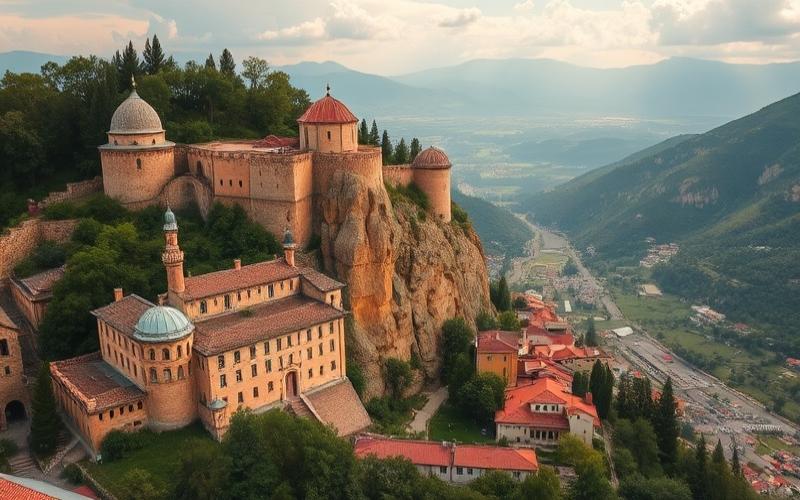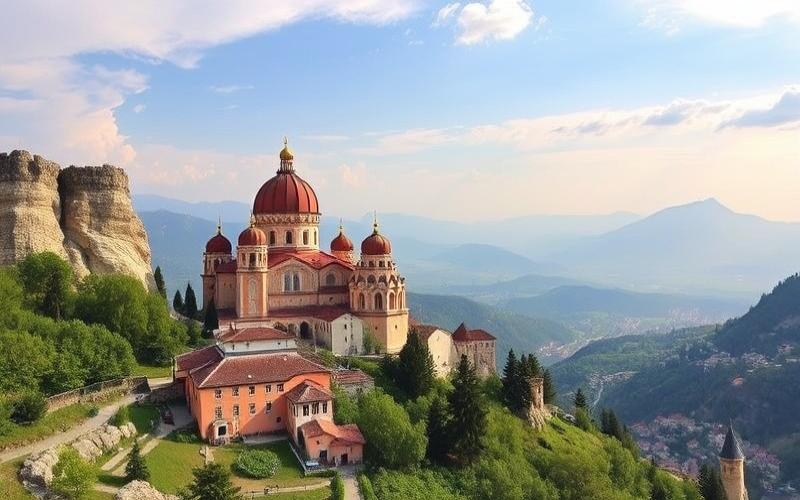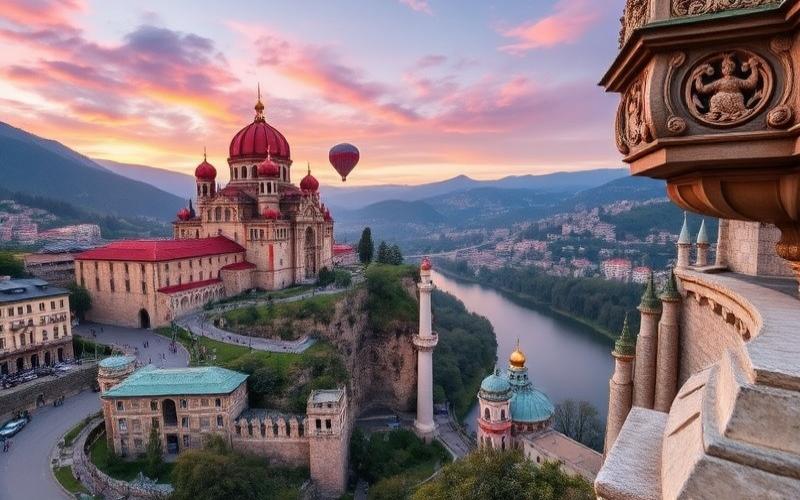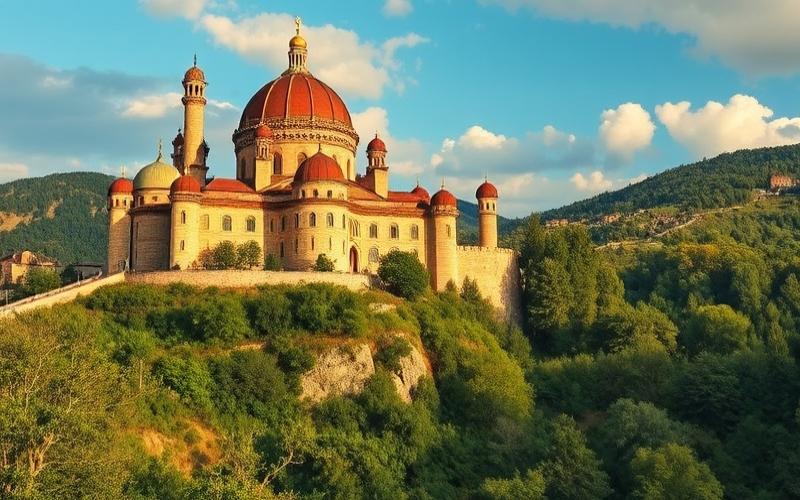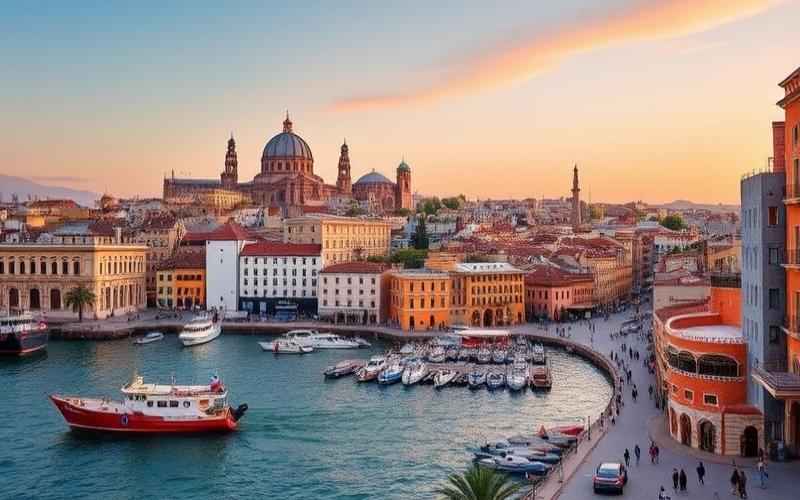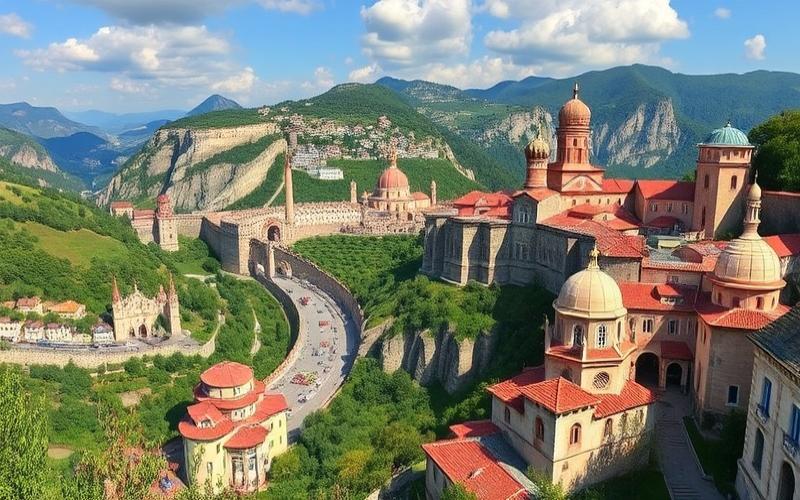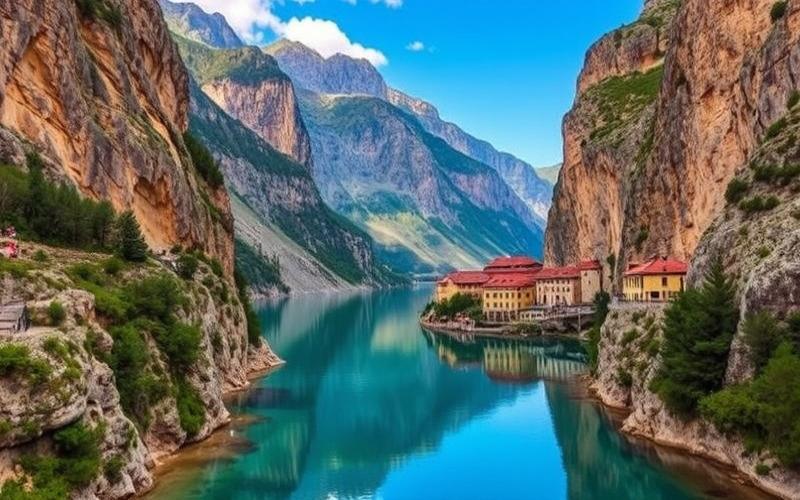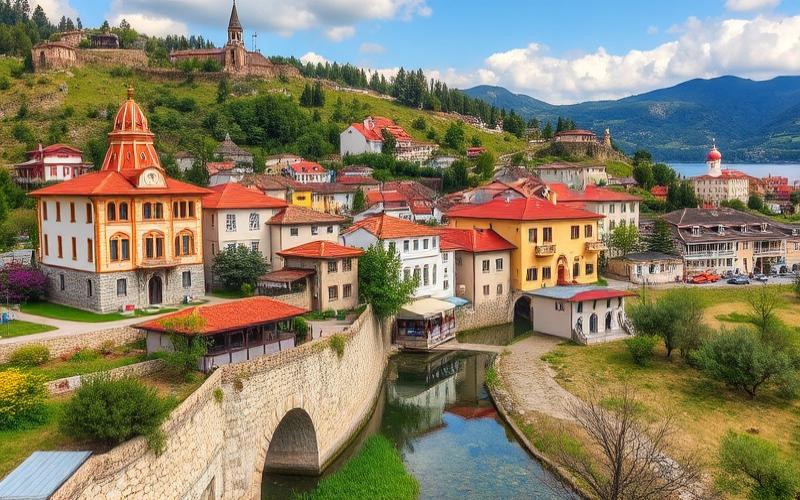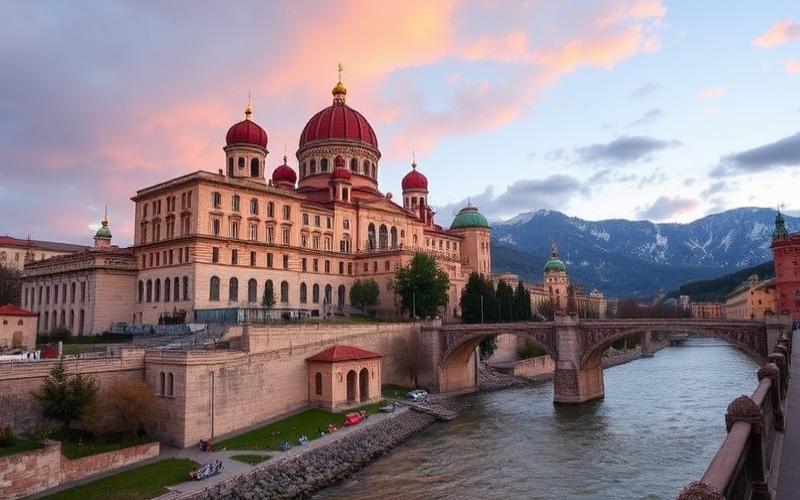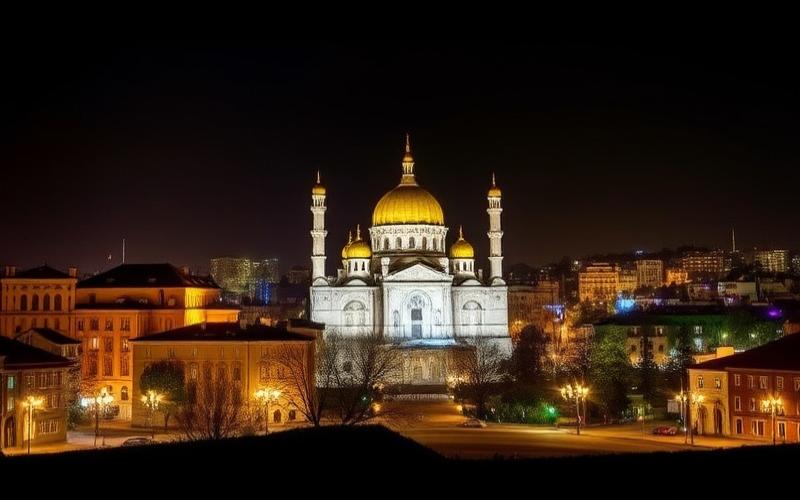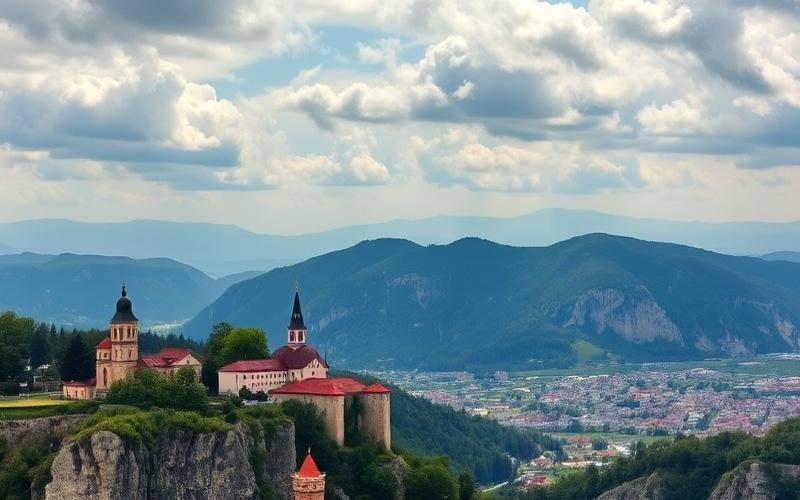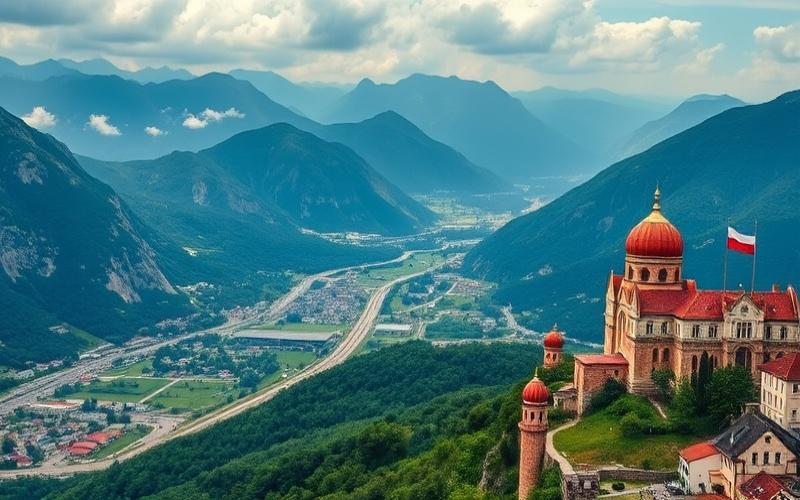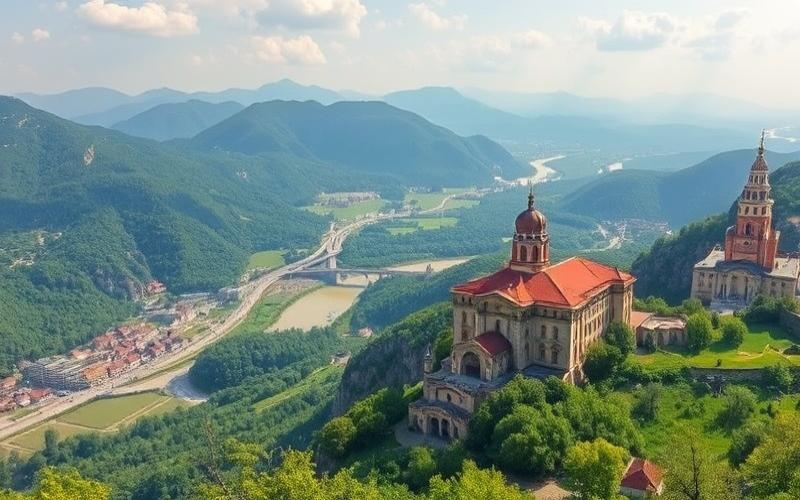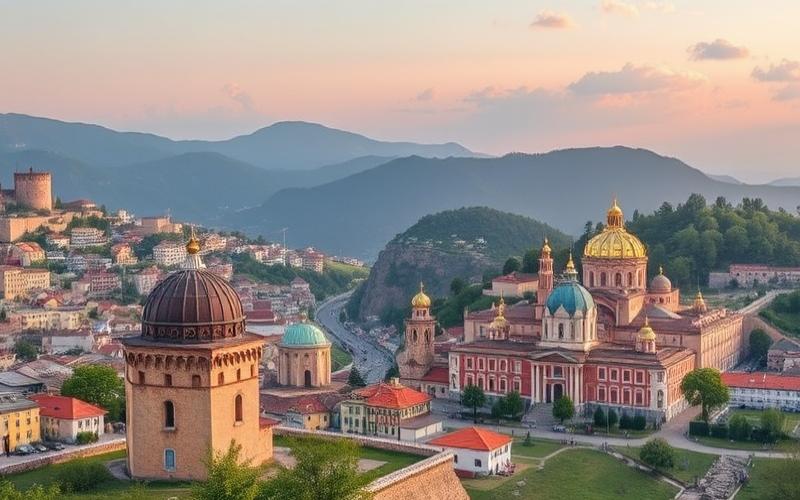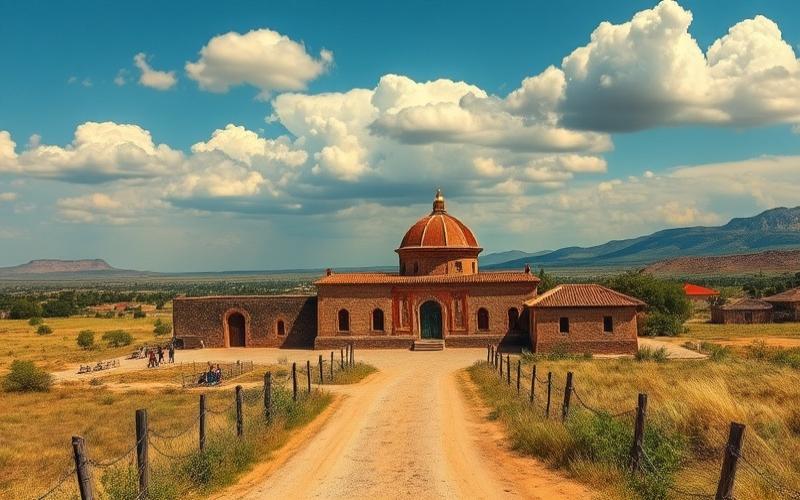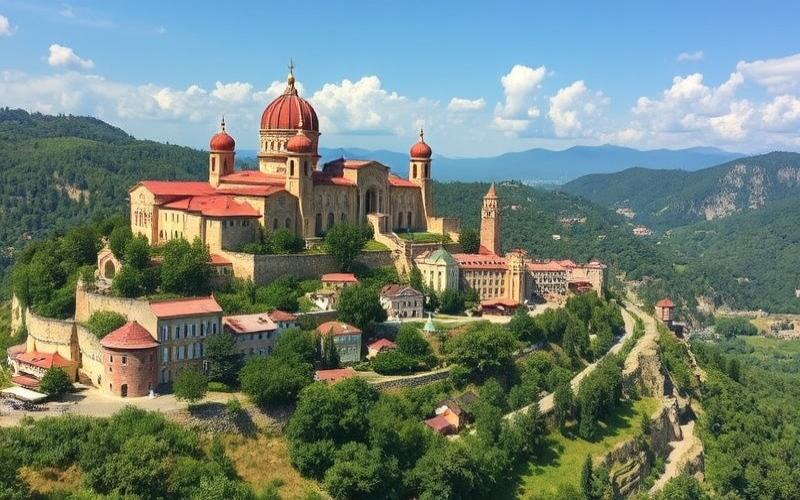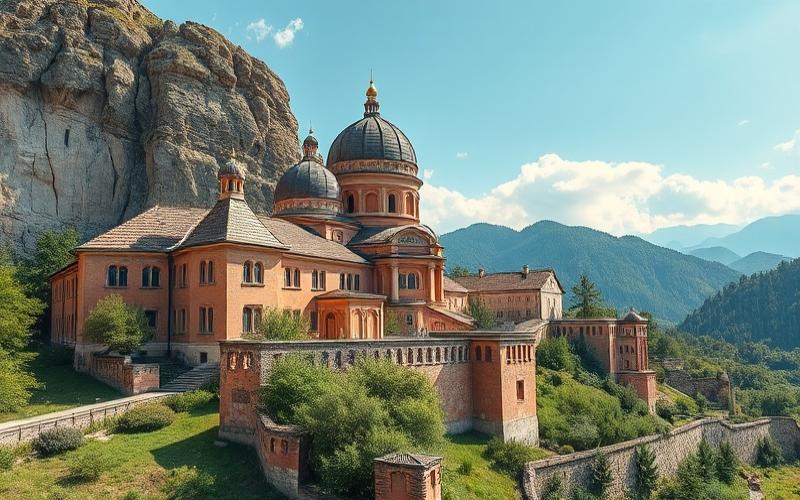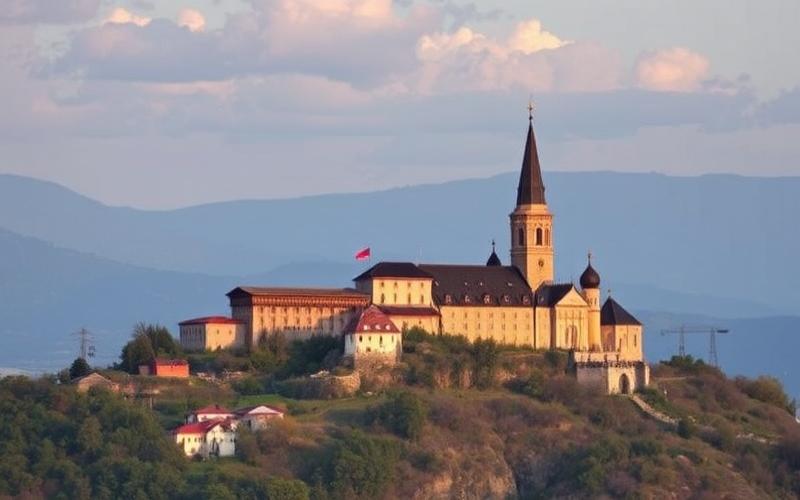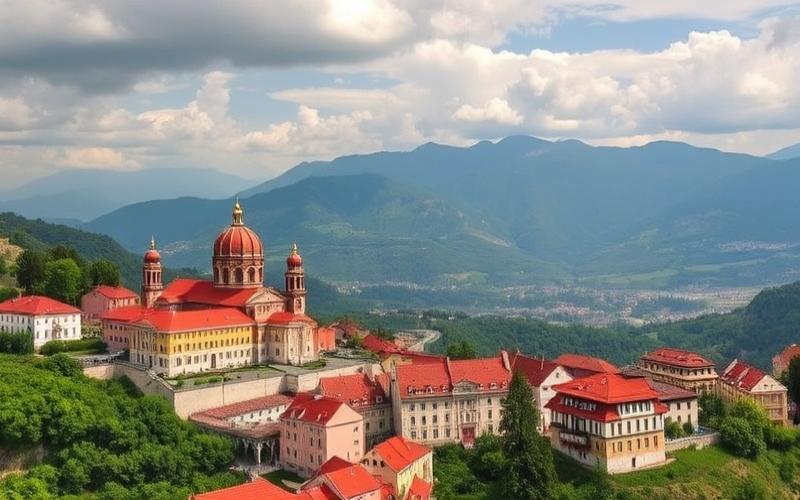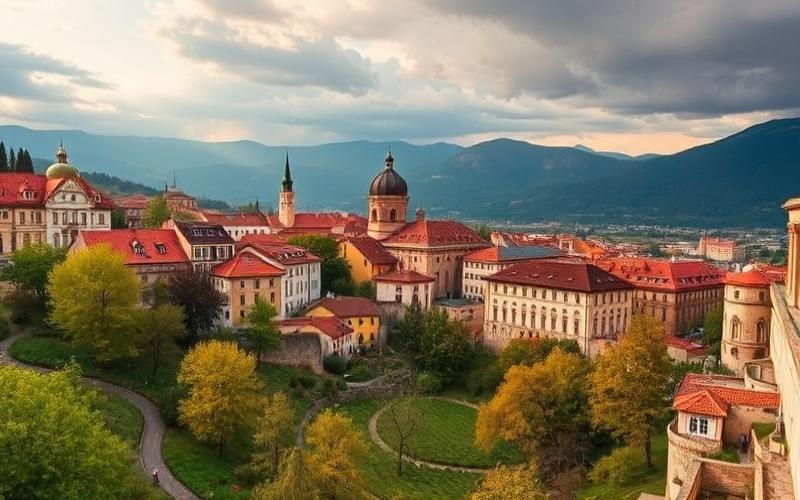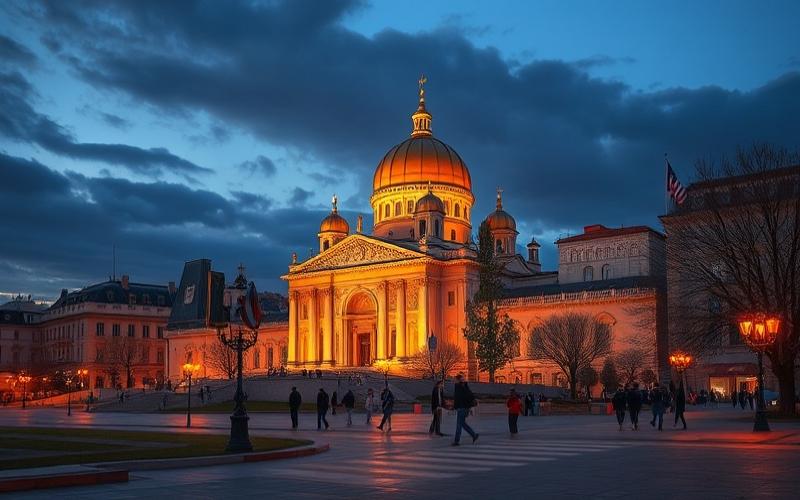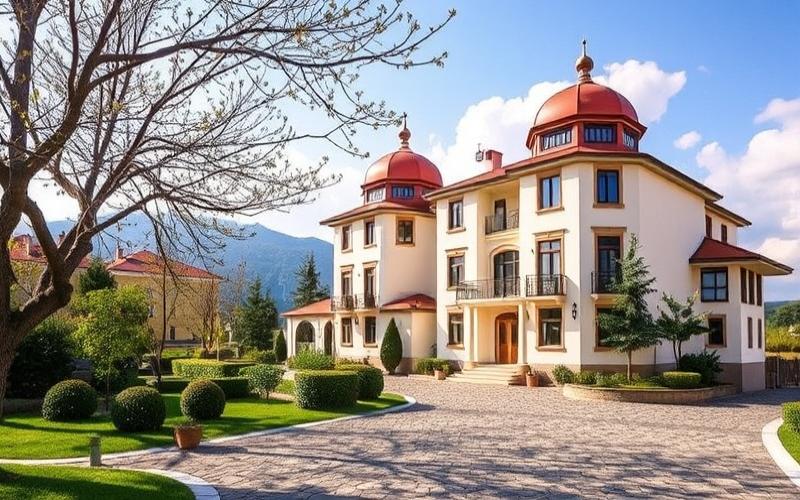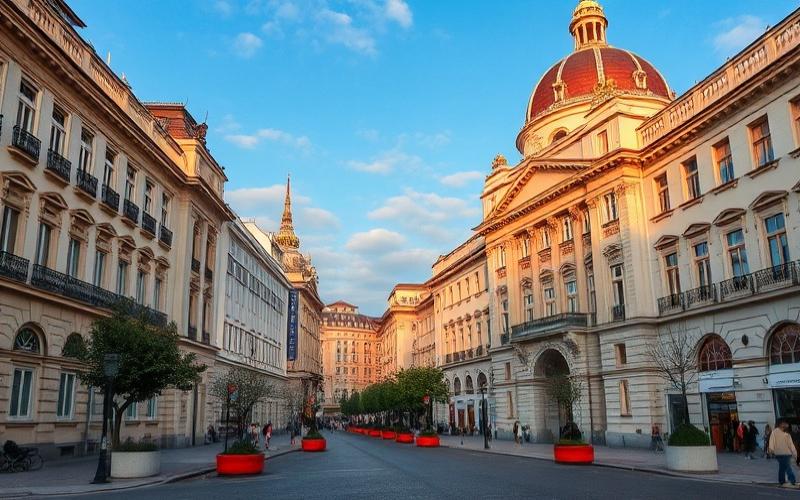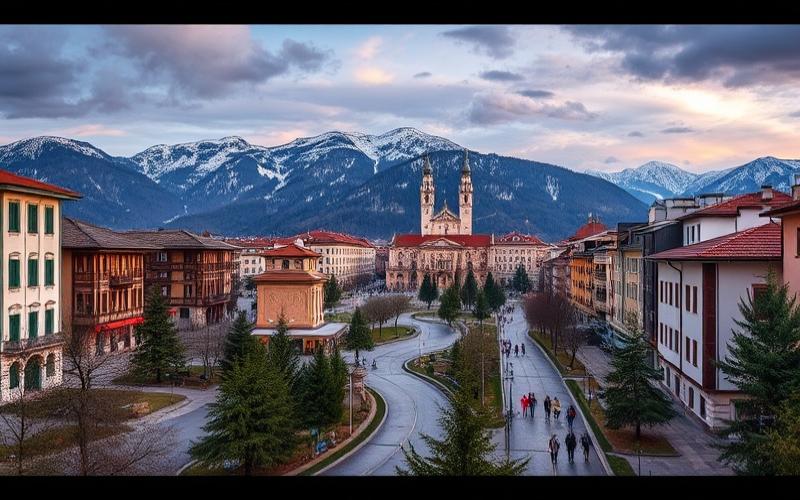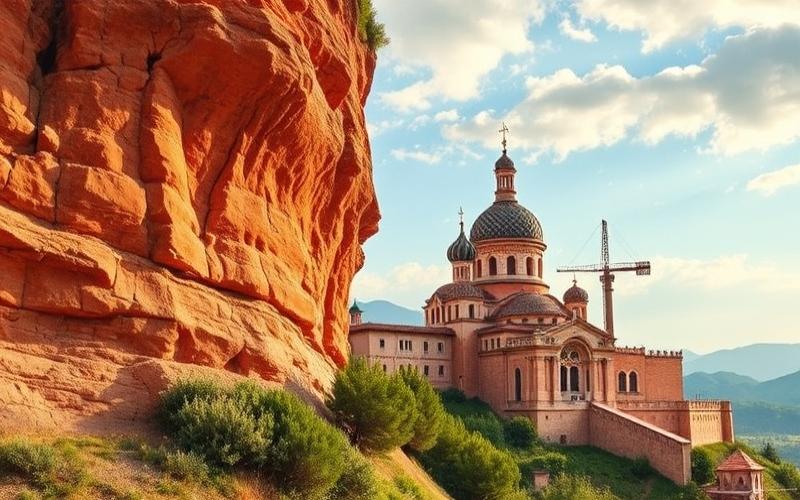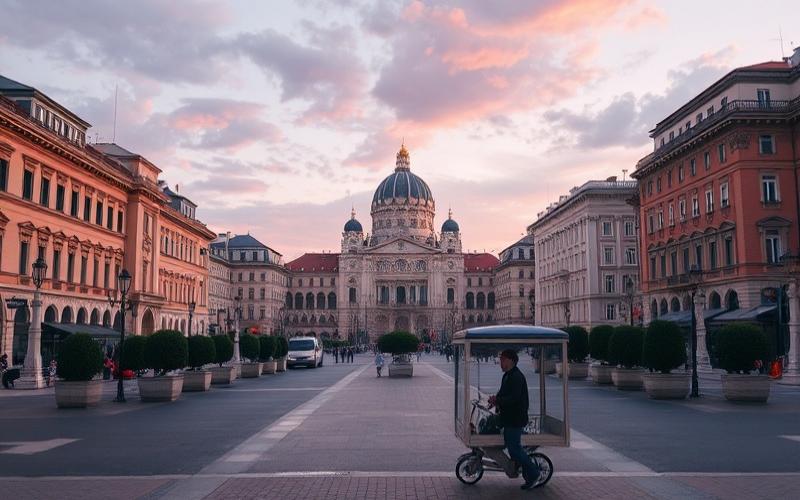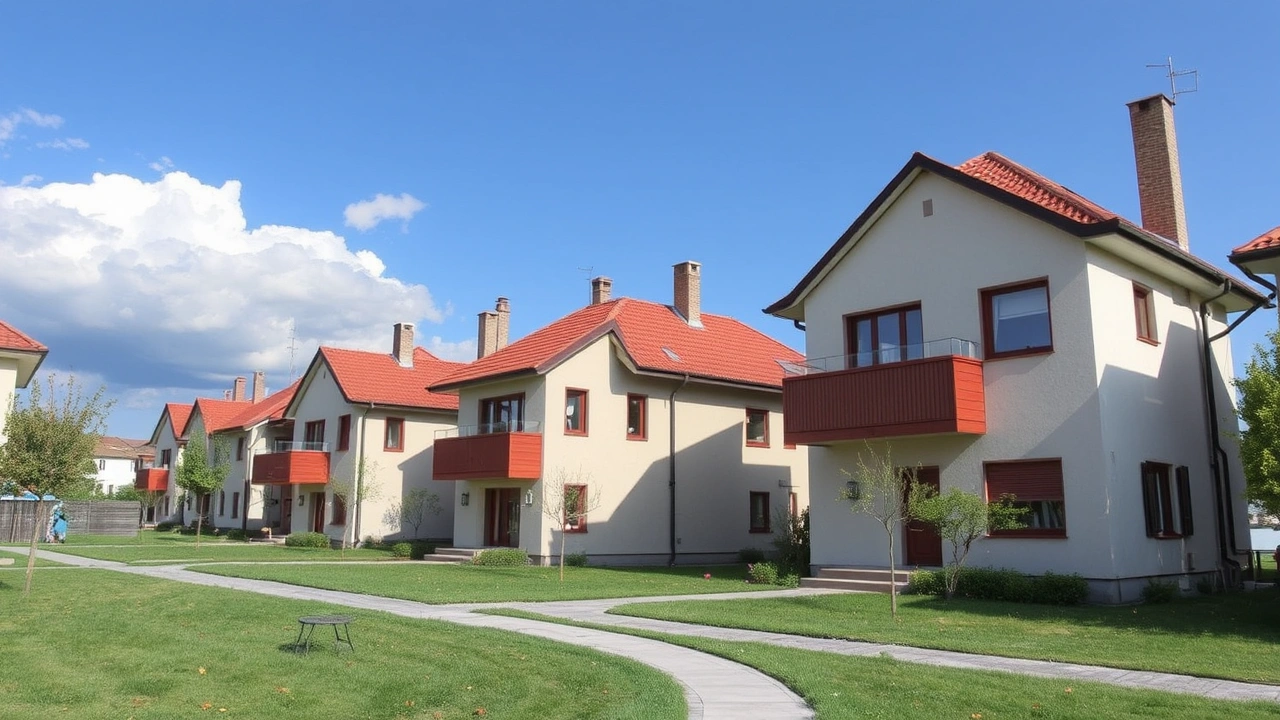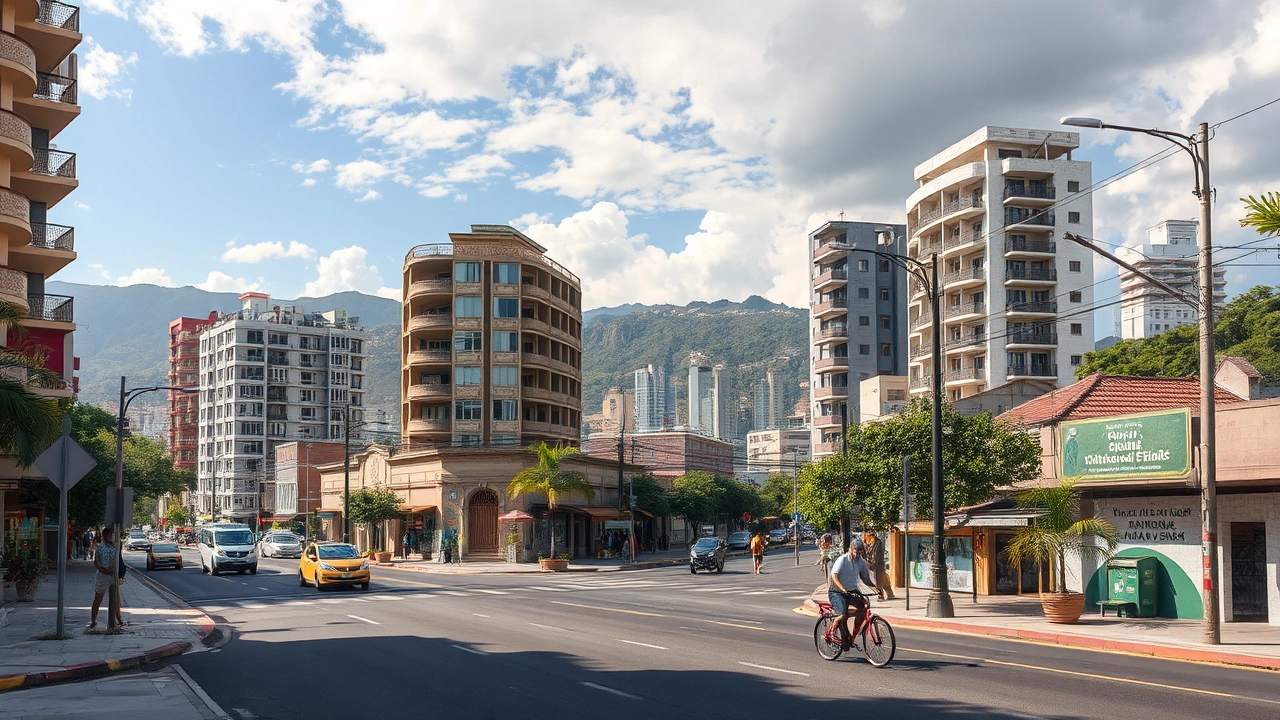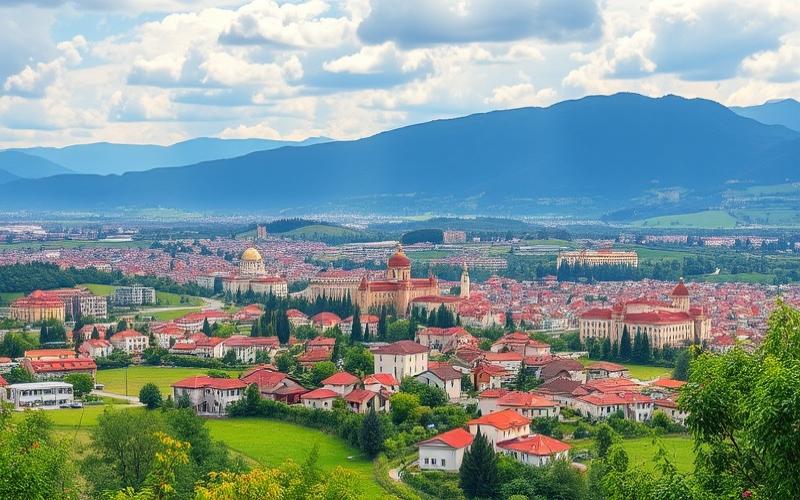
 Published on and written by Cyril Jarnias
Published on and written by Cyril Jarnias
Embarking on a unique adventure, many French citizens have chosen to build their lives in Bulgaria, finding both economic and cultural opportunities in this country. These expatriate homeowners share their testimonials about the richness of life under a different sky, where the charm of Bulgarian landscapes and the friendliness of the locals transform their daily lives into an enriching experience. Moving beyond stereotypes, they discuss the challenges and joys, balancing adaptation to an unconventional living environment with integration into a surprising local community. Their journey, oscillating between discoveries and memories, invites us to understand this choice to live differently.
Real Estate Purchase Challenges for French Expatriates in Bulgaria
Legal Obstacles for French Expatriates
French expatriates wishing to purchase property in Bulgaria face several legal challenges. Although European Union citizens can now buy land in Bulgaria, certain restrictions persist. For non-EU residents, purchasing land requires establishing a Bulgarian company, which adds a layer of complexity to the process. Buyers must be particularly vigilant regarding property titles and ensure the legality of the transaction.
Financial and Administrative Challenges
Financing often constitutes a major obstacle for French expatriates. Bulgarian banks are generally reluctant to grant real estate loans to non-residents, particularly for large amounts. Interest rates can be higher than in Western European countries, ranging between 3.5% and 5% in 2025. Buyers therefore often need to consider financing from their home country or from specialized international banks.
Administratively, the purchasing process can prove complex. The steps include:
- Signing a preliminary contract
- Paying a deposit (typically between 10% and 30% of the purchase price)
- Thorough verification of property documents
- Signing the final notarized deed
It is highly recommended to hire a local attorney to navigate these procedures, as documents are typically written in Bulgarian.
Cultural Differences and Negotiations
French expatriates may be surprised by certain local practices when purchasing property in Bulgaria. Price negotiations may follow different standards than what they’re accustomed to. It’s common for sellers to initially overprice properties, expecting significant negotiation.
The relationship with local real estate agencies may also differ from French standards. Some agents may lack professionalism or transparency, so it’s crucial to choose a reputable agency and thoroughly research local practices.
Testimonials and Practical Advice
Marie, a French expatriate who bought a house near Varna, shares her experience: “At first, I was lost facing the administrative complexity. Hiring a bilingual attorney was the best decision I made. He guided me through each step and negotiated on my behalf.”
Pierre, who owns an apartment in Sofia, advises: “Take the time to really understand the local market. I visited numerous properties and spoke with other expatriates before making my choice. This helped me avoid several potential pitfalls.”
To overcome these challenges, here are some practical tips:
- Conduct thorough research on the Bulgarian real estate market
- Assemble a team of trusted professionals (attorney, real estate agent, translator)
- Prepare your financing in advance, exploring all available options
- Be patient and ready to navigate a different administrative system
- Familiarize yourself with local property laws and regulations
By following these tips and remaining vigilant, French expatriates can overcome the challenges of purchasing property in Bulgaria and successfully realize their project.
Good to Know:
French expatriates in Bulgaria must overcome certain challenges when purchasing property. Financial aspects include the difficulty of obtaining a loan as a non-resident, often requiring a substantial down payment, and administrative complexities where language and bureaucracy can slow down the process. Culturally, understanding local norms such as flexibility in price negotiations and proper etiquette with real estate agents is crucial. Sharing their experiences, some expatriates recommend hiring a competent local attorney to facilitate all these processes and share that their success lies not only in good preparation but also in adapting to Bulgarian practices, illustrated by an example where one of them used a company to bypass land acquisition limits.
Living in Sofia: Feelings and Advice from French Expatriates
Living in Sofia: Feelings and Advice from French Expatriates
Life in Sofia offers a unique experience for French expatriates, blending challenges and opportunities. Arthur, a young French expatriate, shares his experience: “I arrived in Sofia at 21, knowing no one. The first difficulty was the language, even though you can get by with English in big cities. The administration was also a real challenge, especially for finding housing and setting up my company.”
Despite these initial obstacles, Arthur highlights the many advantages of life in Sofia: “Bulgarians may seem gruff at first, but they have a great sense of humor and are very generous. I particularly appreciate the proximity to nature, Sofia’s large parks, and the nearby Vitosha mountain range.”
Cost of Living and Housing
The cost of living in Sofia is a major advantage for French expatriates. Éléonore, another expatriate, testifies: “The cost of living is very advantageous, allowing for a comfortable standard of living. For a two-bedroom apartment in a decent residential neighborhood, expect to pay around 900 euros per month.”
It’s important to note that prices have increased in recent years, particularly after the Covid-19 health crisis. However, Sofia remains one of Europe’s most affordable capitals.
Cultural and Social Adaptation
Adapting to Bulgarian culture can take time. Marc, a long-term expatriate, advises: “You need to be open-minded and patient. Bulgarian society is more traditional than French society. It’s important to learn some basic Bulgarian, even though English is widely spoken by young people.”
The French community in Sofia is dynamic and offers a good support network. There are approximately 3,000 to 4,000 French citizens in the capital, which facilitates the integration of newcomers.
Quality of Life and Leisure
Sofia offers an excellent quality of life, with numerous green spaces and varied leisure opportunities. Éléonore adds: “I really like Bulgarian culture, with its many holidays and beliefs. The cuisine is excellent, a blend of Turkish, Greek, and Slavic cooking.”
Expatriates particularly appreciate the city’s safety. You can walk alone at any time of day or night without fear, which strongly contrasts with some major French cities.
Advice for Newcomers
- Learn the basics of Bulgarian, it will greatly facilitate your daily life
- Join expatriate groups on social media for advice and support
- Explore different neighborhoods before choosing your housing. The Lozenets, Iztok, and Oborishte neighborhoods are popular among expatriates
- Enjoy the city’s many parks and green spaces
- Be patient with the local administration, which can sometimes be slow and complex
In conclusion, living in Sofia offers an enriching experience for French expatriates. Despite some initial challenges, the quality of life, affordable cost, and cultural richness of the city make it an attractive destination for those seeking a new adventure in Eastern Europe.
Good to Know:
French expatriates in Sofia emphasize that adapting to local life requires some flexibility in the face of cultural differences but is rewarding. Most recommend settling in the Lozenets or Vitosha neighborhoods for their friendly atmosphere and amenities. The cost of living is generally lower than in France, which is a notable advantage, although the language barrier can pose some daily challenges. Integrating into the French community through local support networks, such as social media groups or associations, facilitates adaptation and offers solid social support. Expatriates appreciate Sofia’s rich cultural scene and recommend immersing themselves in local traditions, particularly by participating in festivities and exploring Bulgarian cuisine.
Expatriate Testimonials on Property Purchases in Bansko
Motivations of French Expatriates to Invest in Bansko
French expatriates are increasingly choosing Bansko for their real estate investments. This Bulgarian ski resort attracts with its favorable economic context and appealing investment opportunities.
A Parisian couple in their thirties, Marie and Thomas, testify: “We were looking for a pied-à-terre in Eastern Europe, and Bansko won us over with its attractive prices and growth potential. An 80m² apartment cost us only 85,000 euros, which was unthinkable in Paris.”
The low cost of living is also a determining factor. Julie, a 35-year-old freelancer, explains: “My income allows me to live comfortably here. I can afford a large apartment and regular outings, which wasn’t the case in France.”
Challenges and Experiences During Property Purchase
Despite the advantages, purchasing property in Bansko is not without hurdles for French expatriates. The language barrier and administrative differences can complicate the process.
Pierre, a 62-year-old retiree, recounts: “I had to hire a translator for all the documents. It was an additional investment but necessary to avoid misunderstandings.”
The search for the right property can also prove arduous. Sophie, a 40-year-old investor, shares her experience: “I visited about ten properties before finding the gem. Some were in poor condition despite enticing photos online.”
Quality of Life and Cost of Living in Bansko
French expatriates unanimously agree on the exceptional quality of life offered by Bansko. The significantly lower cost of living compared to France allows them to fully enjoy local leisure activities and infrastructure.
Marc, a 45-year-old entrepreneur, compares: “In Bansko, I can treat myself to a gourmet dinner for 20 euros, whereas in Paris it would cost at least triple. Outdoor activities are also very accessible.”
The proximity to nature is also highly appreciated. Céline, a 38-year-old mother, enthuses: “My children can ski in winter and hike in summer. It’s an ideal living environment for them.”
Integration Within the Local Community
The integration of French expatriates in Bansko appears to proceed smoothly, although some challenges persist. The language barrier remains an obstacle, but many make the effort to learn Bulgarian.
Luc, a 30-year-old digital nomad, testifies: “I took Bulgarian lessons online. Even though I’m not yet fluent, the locals appreciate my efforts and are very welcoming.”
The international community present in Bansko also facilitates integration. Amélie, a 36-year-old freelance graphic designer, explains: “There are many events organized for expatriates. It’s an excellent way to meet people and feel less isolated.”
However, some expatriates note that it takes time to create deep connections with locals. François, who has lived there for 5 years, nuances: “Initially, relationships remain quite superficial. You really need to invest in local life to be fully accepted.”
Good to Know:
French expatriates seeking real estate investment in Bansko are often drawn by its picturesque mountain setting and competitive prices compared to France or other regions of Bulgaria, making this town a sought-after destination for property purchases. The favorable economic context with a growing market and relatively low property fees reinforces their choice. However, the purchasing process can prove complex, mainly due to language and administrative barriers, as illustrated by the experience of Marc, who came from the Alps, recounting the difficulty of understanding contracts in Bulgarian. Despite these challenges, the quality of life in Bansko, with its lower cost of living compared to major French cities and a welcoming local community, offers a great integration opportunity, although some expatriates, like Sophie, mention the need for cultural adaptation to feel fully at home.
Disclaimer: The information provided on this website is for informational purposes only and does not constitute financial, legal, or professional advice. We encourage you to consult qualified experts before making any investment, real estate, or expatriation decisions. Although we strive to maintain up-to-date and accurate information, we do not guarantee the completeness, accuracy, or timeliness of the proposed content. As investment and expatriation involve risks, we disclaim any liability for potential losses or damages arising from the use of this site. Your use of this site confirms your acceptance of these terms and your understanding of the associated risks.

